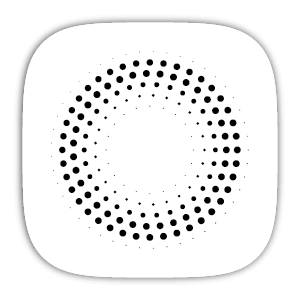Youthful vitality and extended lifespans have become a global obsession. From serums promising to banish wrinkles to supplements claiming to halt the aging process, navigating the world of anti-aging products and practices can feel like deciphering a cryptic code. Let’s try to understand more about longevity and other anti-aging jargon.
Longevity – What does it mean?
Longevity is the concept of extending one’s lifespan, promoting overall health and vitality to enjoy more years of a fulfilling existence.
Longevity encompasses not just the length of life but also the quality of those added years. It involves strategies and practices designed to delay the aging process, minimize the risk of age-related diseases, and enhance the overall well-being of an individual as they age. Achieving longevity is the ultimate aspiration of anti-aging, and it is the underlying principle that guides much of the terminology we encounter in this field. For more queries try Longevity AI. It works as your personal assistant that answers questions about longevity and anti-aging and helps you live longer.
The Anti-Aging Lexicon
1. Aging: The Natural Process
Aging, as a term, often carries a negative connotation in the context of anti-aging. However, it’s essential to understand that aging is a natural process that every living organism undergoes. It involves the gradual changes that occur over time, affecting our physical, mental, and emotional well-being. Anti-aging strategies aim to mitigate the negative aspects of aging while promoting positive ones.
2. Healthspan
Healthspan refers to the period of a person’s life during which they are in good health, free from chronic diseases and functional decline. It represents the duration of time that an individual can enjoy a high quality of life, with optimal physical and mental well-being. Maximizing healthspan is a key goal of longevity science.
3. Caloric Restriction
Caloric restriction is a dietary intervention that involves reducing calorie intake without malnutrition. It has been shown to extend lifespan and improve healthspan in various organisms.
4. Senescence
Senescence is the state of irreversible cell cycle arrest that cells enter into as they age. Cellular senescence contributes to aging and age-related diseases.
5. Epigenetics
Epigenetics refers to changes in gene expression that occur without alterations in the DNA sequence. It plays a role in aging and can be influenced by environmental and lifestyle factors.
6. Wrinkles and Fine Lines
Wrinkles and fine lines are among the most visible signs of aging. They are the result of decreased collagen and elastin production in the skin, leading to sagging and creases. Anti-aging products often claim to reduce or eliminate these telltale signs by promoting collagen production, increasing skin hydration, and protecting against environmental damage.
7. Collagen
Collagen is a crucial protein in the body responsible for maintaining skin’s structure and elasticity. As we age, collagen production decreases, leading to sagging skin and wrinkles. Collagen supplements and skincare products often aim to boost collagen levels to rejuvenate the skin.
8. Free Radicals
Free radicals are unstable molecules that damage cells and accelerate the aging process. Anti-aging practices often involve antioxidants, which neutralize free radicals and help protect the body from their harmful effects. Antioxidants are commonly found in fruits, vegetables, and supplements.
9. Telomeres
Telomeres are protective caps on the ends of our DNA strands. They shorten as we age, leading to cell damage and aging-related diseases. Some anti-aging research focuses on preserving or extending telomere length to promote longevity.
10. Hormone Replacement Therapy (HRT)
Hormone replacement therapy involves the administration of hormones (e.g., estrogen, testosterone) to maintain hormonal balance as we age. It’s used to alleviate symptoms of hormonal imbalance and improve overall well-being.
Age-defying Elixirs
There is no one-size-fits-all approach to achieving longevity and maintaining youthful vitality. Various factors, including genetics, lifestyle, and environment, influence the aging process.
Additionally, the anti-aging industry is flooded with products and services promising miraculous results, which can be overwhelming. It’s vital to approach anti-aging with a critical mind, seeking evidence-based practices and consulting with healthcare professionals when necessary. The age-dyeing elixirs include:
Antioxidants
These molecules prevent the oxidation of other molecules, protecting against cell damage caused by free radicals. Antioxidants are found in various sources like green tea, aloe, and vitamins.
Hyaluronic Acid
This moisture-retaining molecule is present in the skin, joints, and ligaments. It hydrates the skin, and it can be used for various purposes, including injections for joint lubrication and cosmetic treatments.
Peptides
Peptides are short chains of amino acids and serve as building blocks for proteins like collagen. They are used in skincare to help reinforce proteins naturally occurring in the skin, promoting its health and maintenance.
AHA/BHA
These are chemical exfoliants that facilitate skin cell turnover without physical scrubbing. AHA works on the skin’s surface, dissolving dead skin cells, while BHA penetrates beneath the skin’s surface to clean out excess sebum from pores.
Retinol (Vitamin A)
Retinol is a potent antioxidant that promotes healthy skin cells and has various forms in skincare products. It is known for its ability to reduce fine lines and acne, and improve skin texture, but stronger forms may have side effects.
Healthy Lifestyle Choices: The Foundation of Longevity
The most crucial factor is adopting a healthy lifestyle. Regardless of the anti-aging jargon, the following lifestyle choices are consistently associated with better health and increased lifespan:
- A diet rich in fruits, vegetables, lean proteins, and whole grains provides essential nutrients that support overall well-being.
- Physical activity promotes cardiovascular health, muscle strength, and mental well-being, all contributing to longevity.
- Quality sleep is essential for bodily repair and rejuvenation, as well as cognitive function.
- Chronic stress can accelerate the aging process, so stress-reduction techniques like meditation and mindfulness are beneficial.
- Eliminating or reducing smoking and excessive alcohol consumption can significantly enhance health and longevity.
- Regular medical check-ups can help identify and manage health issues early, contributing to a longer, healthier life.
Conclusion
The pursuit of longevity and the fight against the visible signs of aging are common goals for people. However, it’s important to remember that there is no magic potion for eternal youth. Achieving longevity and maintaining a youthful appearance requires a holistic approach that includes a healthy lifestyle, evidence-based practices, and, in some cases, professional guidance.
FAQs
What is the aging process and longevity?
The aging process is defined as the progressive, event-dependent decline in the ability to maintain biochemical/physiological function. Longevity, on the other hand, refers to the length of life span independent of the biological aging process.
What is the definition of longevity of life?
The definition of longevity pertains to the length of one’s life span, which is considered independent of the biological aging process.
What is longevity in gerontology?
Longevity in gerontology refers to the study of long life and the various factors contributing to an extended lifespan.


